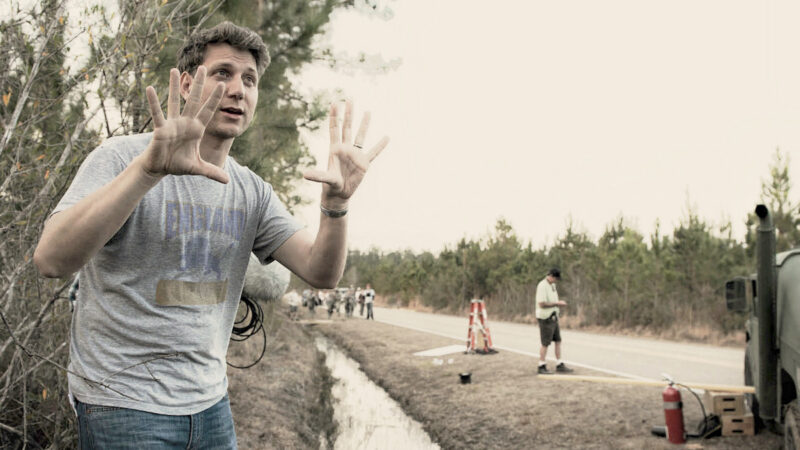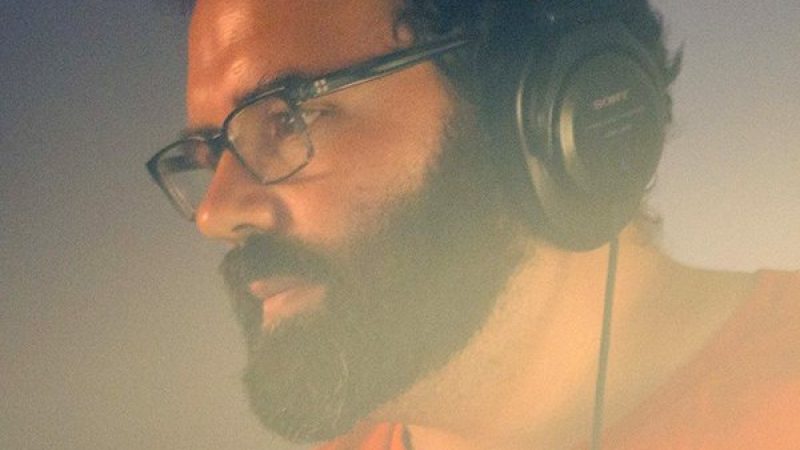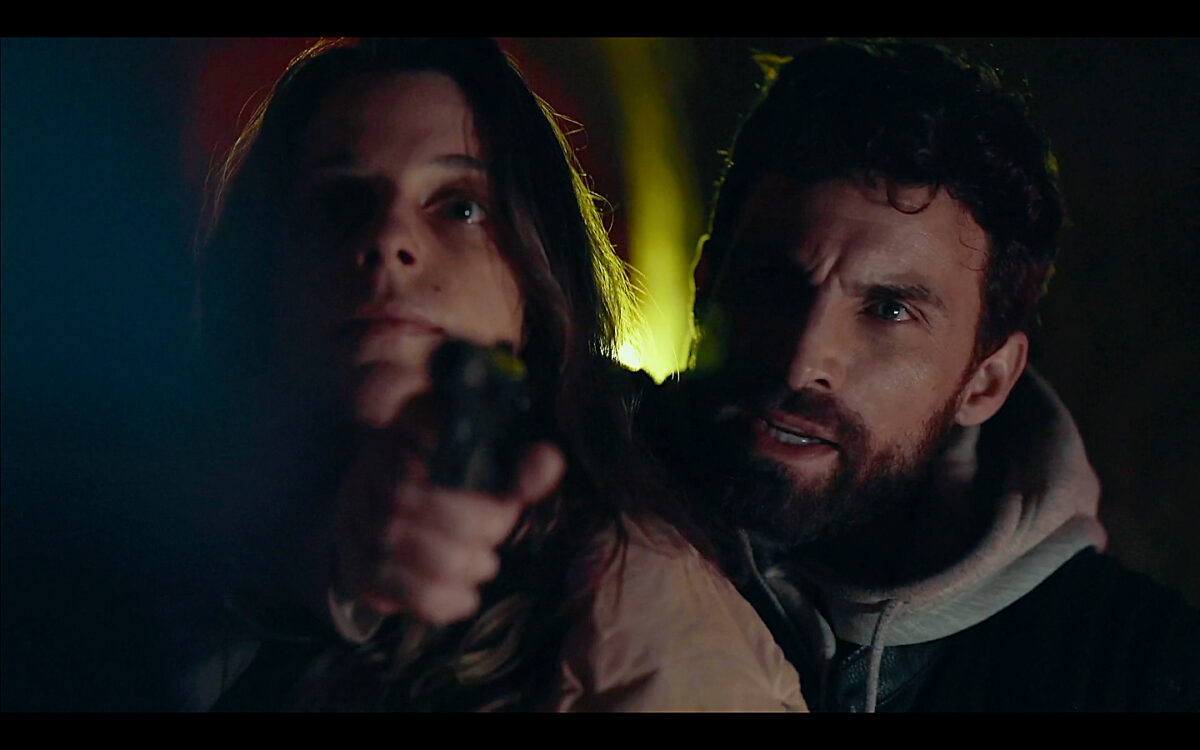
I recall my first time in a film was back in 2004 in an insanely ridiculous horror film, which I’m sorry I must laugh about it now. I will leave the title of the film out of this answer, but I will say even though it was a campy and absolutely ridiculous project, it was my first film, and I’m grateful for it. It was the first time I had to work together with a cast of other actors for whom I mostly didn’t know but gained friendships quickly, and I instantly saw the work ethic and determination not only on everyone’s part of this film but I saw it in myself to make the best film we could possibly make. That’s when I knew this was the career for me, and it put a fire in me to learn and become the best I can be and made me want to reach for the stars and make the best projects and work with the best actors I possibly could, and that I wouldn’t ever give up because quitting isn’t in my soul!
indieactivity: What acting technique do you use?
Erik Fellows (EF): Well, I studied the Meisner Method when I first started in NYC and continued over the years .. then I studied with a handful of amazing teachers such as Katt Shea and with the iconic Howard Fine, who are both brilliant instructors who I call friends as well. They totally changed my confidence and gave me the ability to just live in my roles and not to judge them at all. So I would say I have no method besides my own at this point in my life and career. I just embrace my roles with 100% authenticity and in the now.
You are an experienced actor; how much work: creative, energy, or focus do you put into your scenes?
Erik Fellows (EF): I put everything in me into every character I play and indulge in! I live in the now and only the now and take bits and pieces of experiences I have either lived, experienced myself, or from any research, I applied into each role. I never play an idea; I play moments.
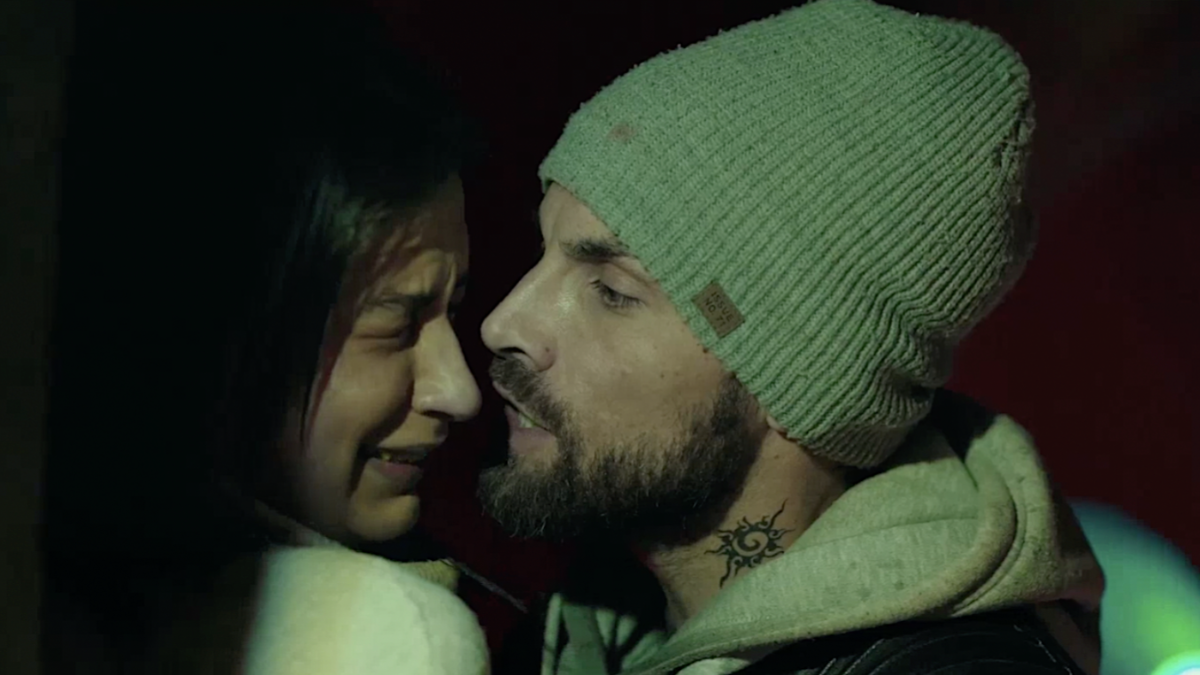
You have worked on popular shows and films; how has each show impacted your work as an actor and your career?
Erik Fellows (EF): I would say each role on any series or film has all been vastly different from one another. I have learned so much from each experience, having played opposite to a lot of the greats and icons. I am blessed for the opportunities to have played alongside talents like Val Kilmer, Cybill Shepard, James Brolin, Lin Shaye, LL Cool J, Gary Sinise, Cloris Leachman, John Savage, Blake Clark, Pam Grier, Peter Falk, Jennifer Lopez, Lindsay Lohan, Katharine McPhee just to name a bunch.
How does the work you do on one show compare to another?
Erik Fellows (EF): They actually don’t. Each series or set works are very different than the next. To be honest, I just go in with an open mind and humbleness with gratitude to even have the opportunity to be there and be part of each and every scenario that I’m in. There, of course, is always some sort of obstacle, whether it be more extreme than the next, but you just need to trust yourself that you got this and stay true to yourself, and you will accomplish what you went there to do. You have to stay present and be willing to learn and take instructions that sometimes you might not agree with or have it being something out of the left-field that you haven’t had to do before; just roll with the punches.
Let’s take a project you did; how did you prepare for such a role: the cast, the physicality, the terrain, the climate, the weather, and the demands of the project?
Erik Fellows (EF): I would have to choose my series “Purgatory.” I play a very complex and eccentric character, Bobby. He has an extremely dark past and life in general. Bobby has spent lots of time in and out of prison, leading an extremely troubled past as an ex-con/rapist/murderer. He comes from a horrible childhood with abuse on all sides. As far as his character goes in the series, I had to find a way to redeem his character in any way I could. I had to find the charm and empathy in him and try to humanize him and give him purpose. So I really dove into this character, not judging him and with a blank slate and keeping in an open mind to his possibilities in life. I researched Ted Bundy and his life and story.
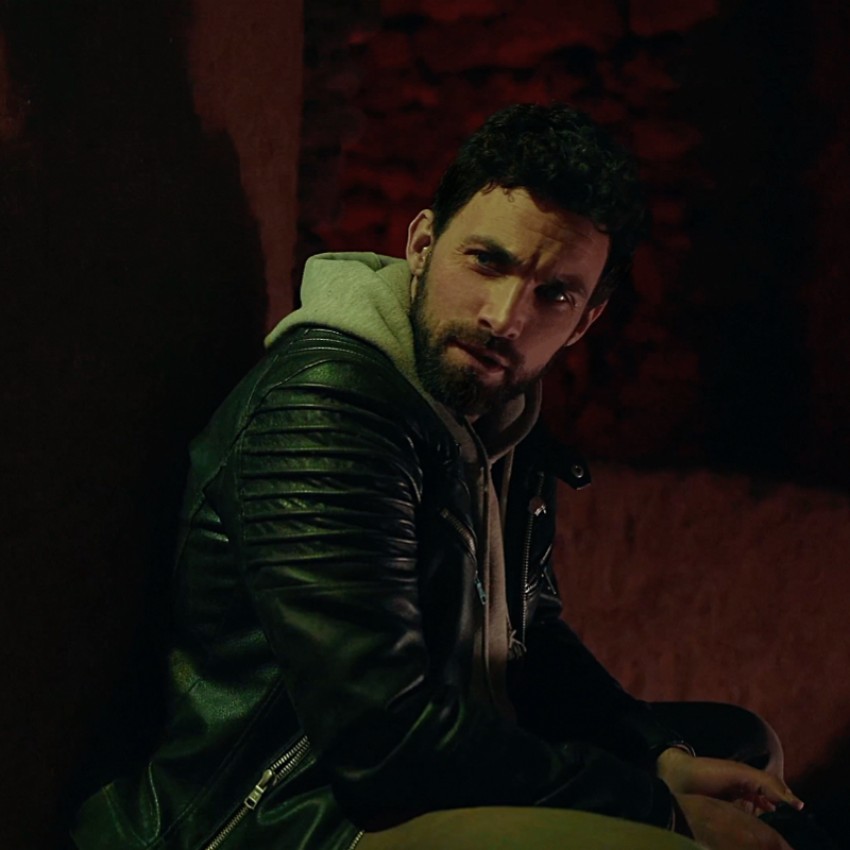
I took in what made him human and what made him a monster to do what he did and still keep his odd compassion even though he seemed to lack empathy and remorse, and women and people, in general, were still mesmerized by him. As far as the location and the physicality aspect, it was quite interesting; it started in the wintery snow in Armenia in the mountains, so as you can imagine, it was freezing. We went on to film deep into a cave underground that was man-made and many stories underground. So the environment helped live the reality of the scenarios, especially being trapped and feeling claustrophobic underground with no way out. It was freezing at times, and it took a toll on all of us mentally and physically.
We definitely had long shoot days and extremely complex scenes at times, raised with high levels of emotions involved putting extra strain on us as cast and on all the crew as well! But we pulled off a great piece of work in the end with two complete seasons, and it’s getting well-received critically and from our new audiences as well. So all and all, it was worth all of it!
As one of the cast on the project, how did this ‘choice’ work for you?
EF: Well, I was given an option of two characters to choose between, and I chose Bobby. I have been wanted to dive into an extreme character like this my whole career and am extremely grateful for the opportunity. I couldn’t have had more fun playing him, and the fulfillment was everything I pictured and more!
How do you create the character from a script into a person?
EF: Well, as I said before, I don’t ever go into a script/ film/series judging any part of the character. I create an understanding for myself and find those pieces that relate to me either from a past situation or moments I have experienced similarities to the character or project. I’m an actor who lives in the second before the moment happens, never anticipating what’s about to happen because, in life, we don’t know what will happen at that moment and at any moment. So judging it will give you a false pretense on the scenario.
What part of the story challenges you when you read a screenplay? What drives you to get on any project?
EF: It comes down to my interest level in the project or screenplay if it’s something I have a lot of interest in or something I care to tap into, or a challenge that I haven’t had yet. I’m all about the challenges that push me to get better and stronger. I only want to be challenged.
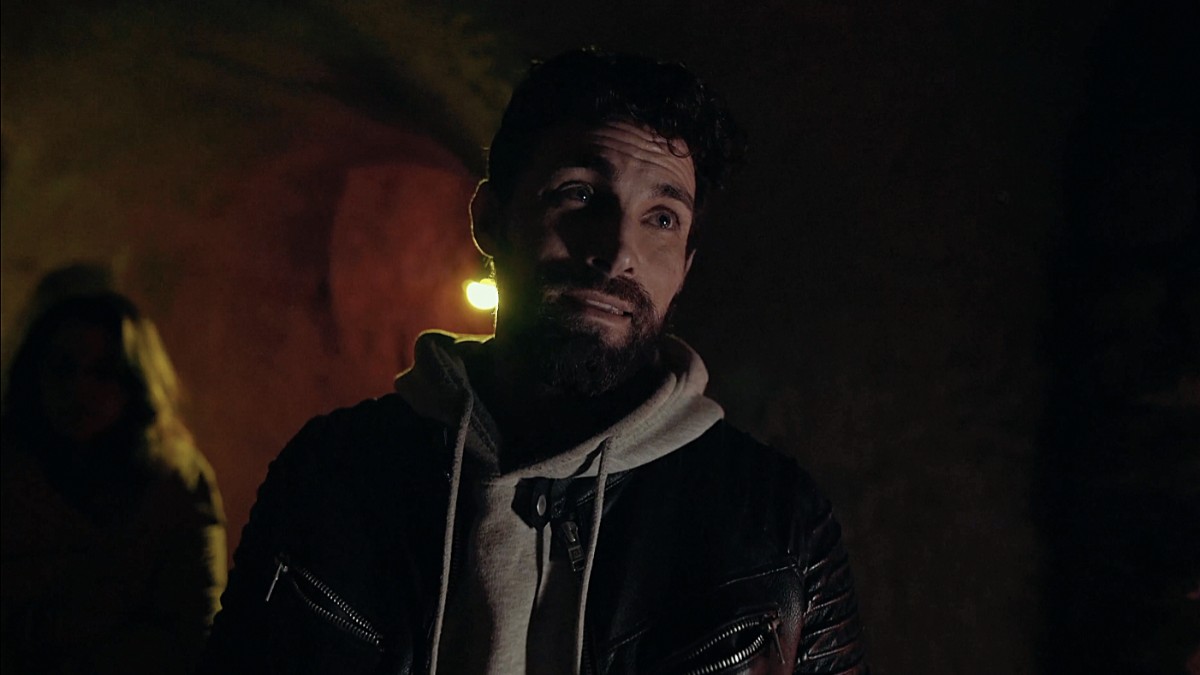
Explain a creative choice you took on the set of a recent production?
EF: My creative character choice would have to be Bobby again. I just let him fly and didn’t think twice about it at all, not knowing the response onset or from the cast, directors, and producers. Thank god they loved it and let me ride to the end!!
You’re not new to show business, TV, or indie films. What do you enjoy about this work that keeps you going?
EF: It’s the capabilities of the unknown that keep me coming back, the challenges, the obstacles, to create something I haven’t before. There is no better feeling at this point in my life.
Give an example of a good direction you received from the director during the production?
EF: I have worked on many projects with many talented directors, Mark David, who I have worked with many times, has directed me as a lead in the award-winning drama “Texas Heart” and my upcoming dark comedy “Starf*cker” coming in Jan 2022, Michael Caissie in “Purgatory” and “No Tears in Hell,” Shane Stanley in “Break Even” all three of these amazing guys who I call great friends are also just fabulous people and just extremely talented actors directors as we call them. There isn’t just one moment of great direction with any of these three; they make the set and environment as comfortable as they can and make the actor feel they can do anything and feel like they can live and create something amazing.
Give an example of a bad direction you received from the director during the production?
EF: Well, I have learned over the years as a veteran in this biz, if we have differences on set or while filming, we discuss during that time, in an appropriate way, not to be put on blast for the public to see or read and interpret what they will from it. So as I appreciate the question. I will leave this one alone. Hahaha, thanks, though.
How do you prefer to collaborate with cast members from scene to scene?
EF: Love to work as closely as possible and make them feel as safe and comfortable as possible. I want and need them to feel free and confident, so we can achieve the best work possible.
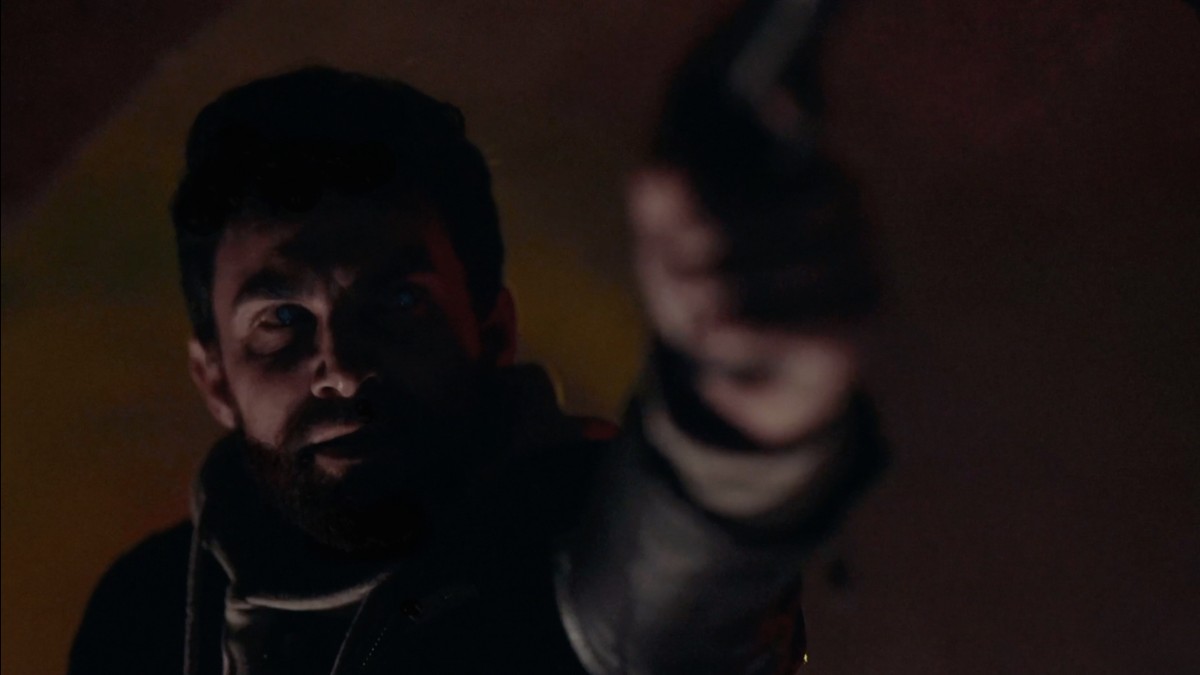
As the main cast on the film (mentioned above), describe the feeling of responsibility that you shouldered. Were you scared? Or did it fire you up? What scenes were difficult to shoot?
EF: I have learned to embrace the moments when you’re given the reigns on a project as the lead, nerves, fear, anxiety are all part of life and day to day for anyone living. So we have to just embrace all those and live and breathe, and it will be ok.
What did you take away from that film production?
EF: Everything and more. More confidence as an actor than the last one. So I think I’m feeling great about it and just sit back and enjoy it.
What do you like most about directors and his/her collaboration with his/her team?
EF: Well, it takes an army to make all this possible, so anytime you get a great team assembled and you hit the finish line, there isn’t a better feeling of accomplishment.
What is next for you?
EF: Well, I have a bunch of projects coming out soon. 2nd Season of my series, “Purgatory,” was just recently released on September 16th, 2021, so doing a ton of PR on that at the moment. I have two comedies being released very soon 1. a dark comedy called “Starf*cker” & 2, a rom-com called “Divorce Bait,” both extremely in your face and hilarious and just plain good movies. I have a drama/ thriller called “Zero Road,” a Xmas movie called “Love is in Bel Air,” as well as a horror/thriller, called “No Tears in Hell,” and this one will be scary and intense; to say the least!
What advice do you give actors regarding what you learned on the project?
EF: I learned to trust myself more than ever as an actor and human being, I learned your fears will eventually become your powers, and I learned to never give up on your abilities because you have so much more than you ever thought you had!
Tell us what you think of the interview with your Erik Fellows. What do you think of it? What ideas did you get? Do you have any suggestions? Or did it help you? Let’s have your comments below and/or on Facebook or Instagram! Or join me on Twitter.
Follow Erik Fellows on Social Media
IMDb
Facebook
Twitter
Instagram
YouTube
MORE STORIES FOR YOU
The Key Facts Behind How Jeff Nichols Made The Indie Hit MUD
Jeff Nichols gives himself directorial challenges to master on every project.
In Conversation with Michael Oblowitz Director of Confidential Informant
Confidential Informant stars Mel Gibson, Dominic Purcell, and Kate Bosworth

